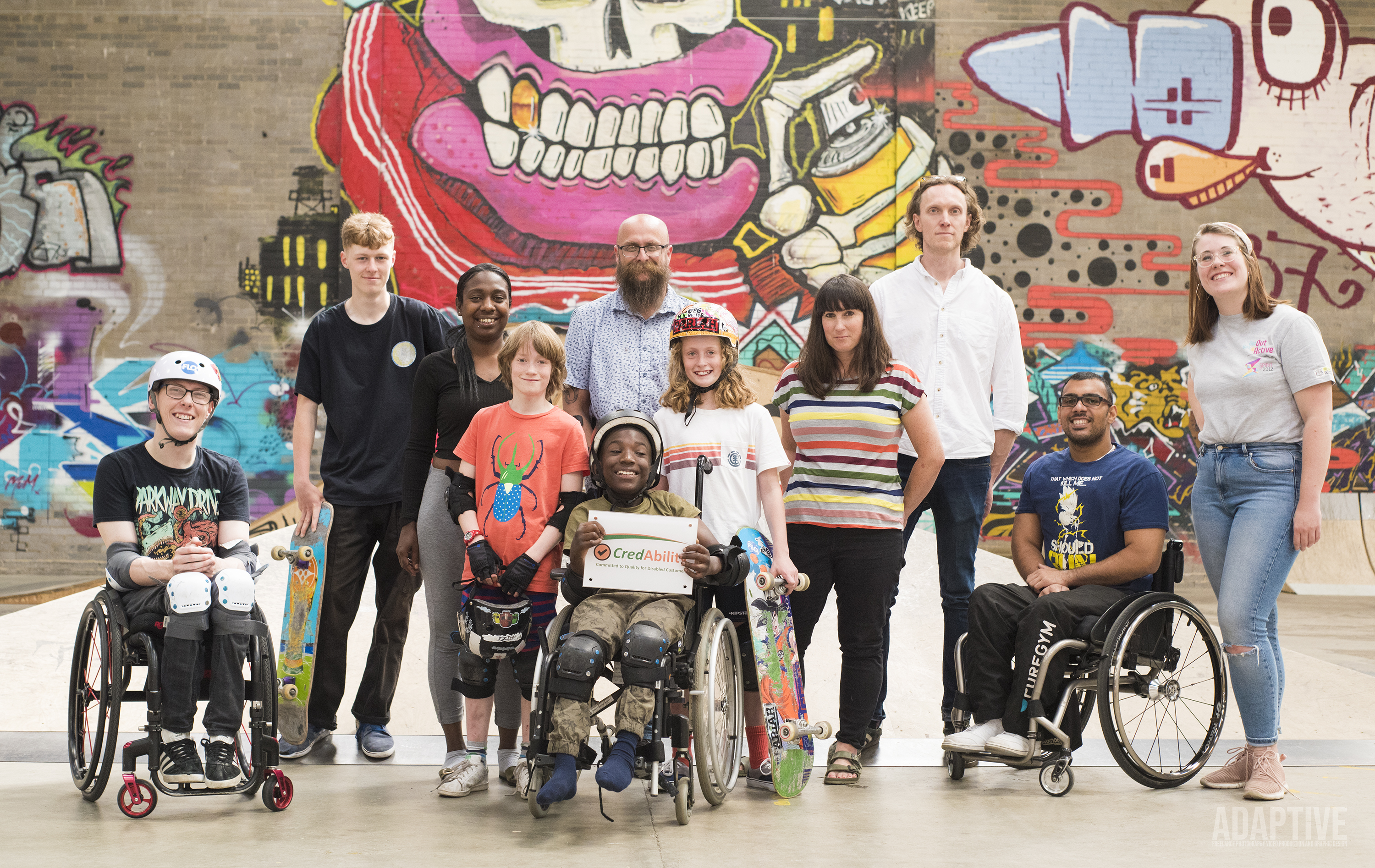Get Out Get Active celebrates phase one success
Following three years in delivery, Get Out Get Active (GOGA) is celebrating the programme’s impact so far as it moves into the next phase. Findings show the programme’s overwhelming success in bringing disabled and non-disabled people together in activities across the UK. The report covers the programme, funded by Spirit of 2012 from 2016-2020.
 The impact report is now available to read. It explores how partners have reached the very least active in truly inclusive activities. The impact of which has resulted in stronger, healthier, and happier communities.
The impact report is now available to read. It explores how partners have reached the very least active in truly inclusive activities. The impact of which has resulted in stronger, healthier, and happier communities.
Whilst the programme has always been much more than the numbers, we are proud to report we have:
- Engaged more than 30,000 disabled and non-disabled people participants, 42% of which admitted to doing no physical activity prior to GOGA
- Supported over half of our participants to have the confidence to take up additional sport and physical activity opportunities. This is 9-12 months after taking part in the programme
- Recruited 2,800 volunteers
- Supported 2,000 volunteers and paid staff to reach the very least active
- Delivered over 2,400 activities and a multitude of events across the UK
The first phase of the programme ran over three years (2016-2019) within 18 localities across the UK. Lead partner Activity Alliance teamed up with an extensive range of partners to help GOGA reach more people. They are supported by the Home Nation Disability Sport Organisations (Disability Sport Northern Ireland (DSNI), Disability Sport Wales (DSW) and Scottish Disability Sport (SDS). These partners offer in-depth local knowledge and national expertise.
GOGA enables people to take part in a wide range of activities. We engaged people in the communities they live in to:
- Improve health and wellbeing, and as a result, improve our communities and society
- Improve perceptions of disability and impairment
- Lead to experience greater social cohesion and understanding
The report shares top learning to address all of the above, as well as showing how a programme can:
- Actively consult with the least active to understand the barriers/hurdles to participation. Work with them to co-produce and co-create the activity offer.
- Embed an approach to delivery that support disabled and non-disabled people to be ‘active together’
- Extend partnership building into communities and specialist community groups beyond traditional physical activity routes
- Actively seek help from specialist partners to improve delivery, and
- Underpin delivery through workforce development focussed on diversity and inclusion
Ultimately, the success is credit to the partners, who embrace what is defined in the report as the ‘GOGA approach’. This leads to everyone attracting and retaining the very least active participants.
GOGA is guided by Activity Alliance’s 10 principles. These principles form the foundations of the ‘GOGA approach’. If used effectively, these can help providers to engage the very least active disabled and non-disabled people. The Activity Alliance Talk to Me research with disabled people led to these principles. The research explored what helps to make activities more appealing and accessible[1].
Over the next few months, we will continue to digest all GOGA information and learning gathered to date. Look out for further releases to inform others’ practice.
From 2020, thousands more inactive people across 21 locations will benefit from the latest £5million GOGA programme supported by founding funder Spirit of 2012 and additional investment from Sport England and the London Marathon Charitable Trust.
[1] See http://www.activityalliance.org.uk/how-we-help/research/1878-talk-to-me-october-2014